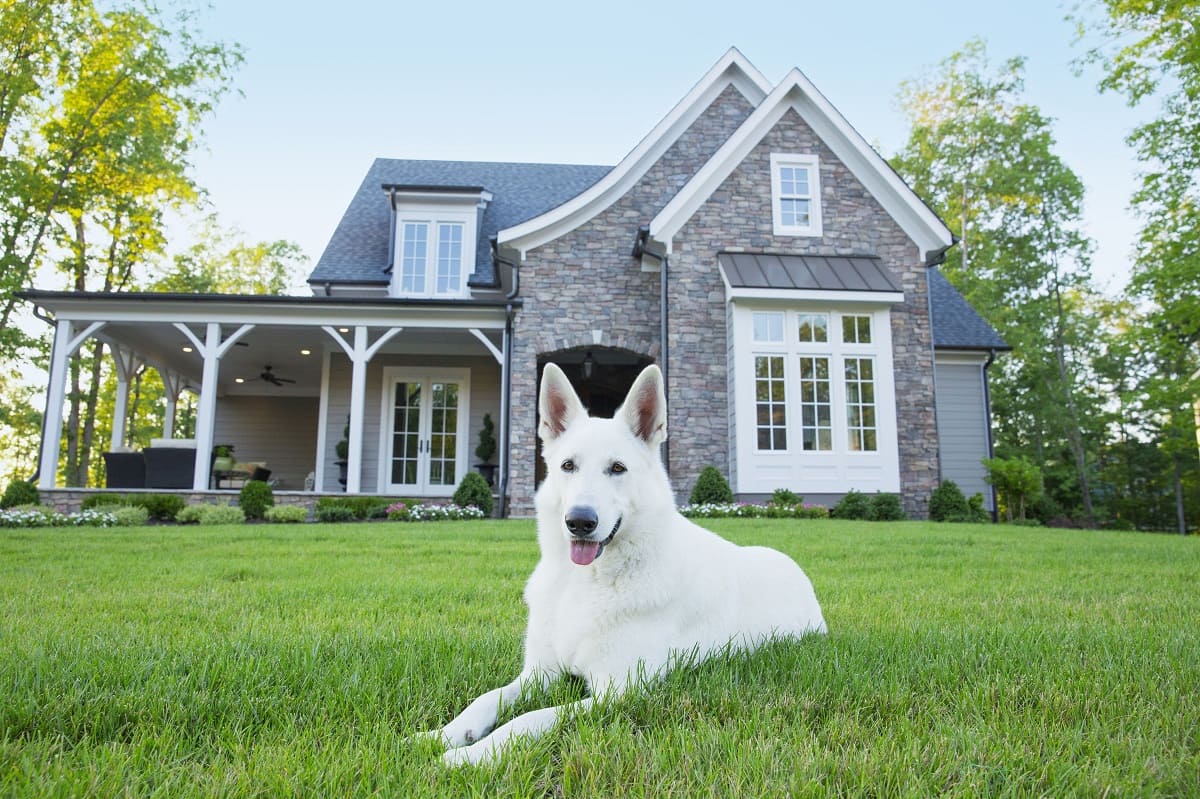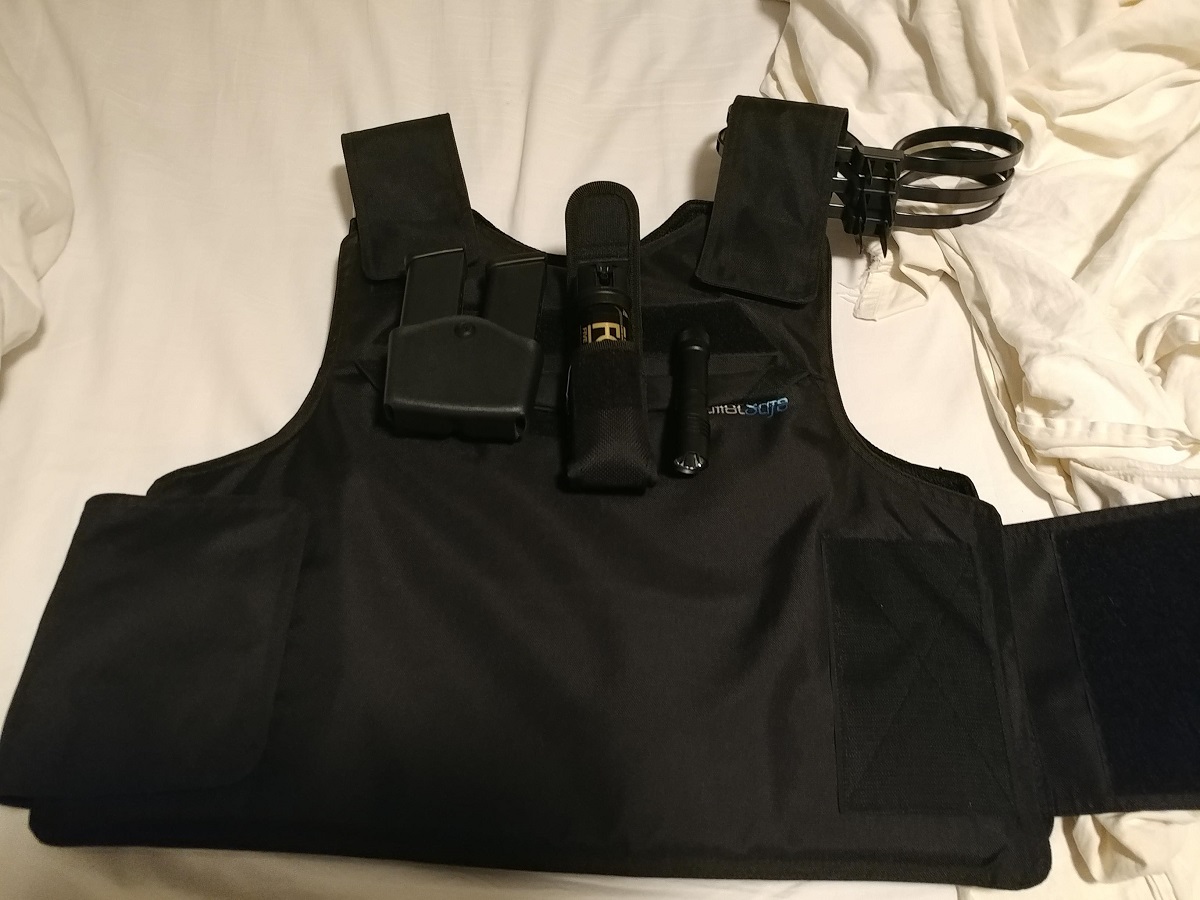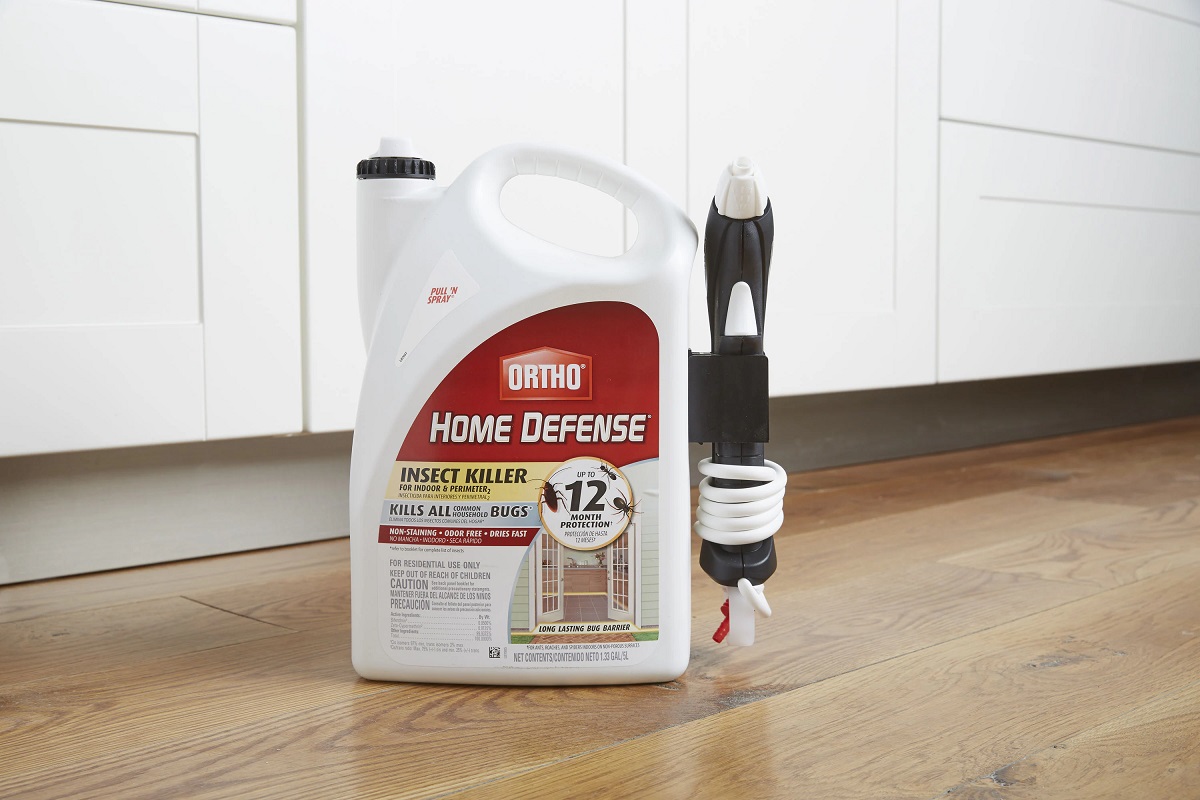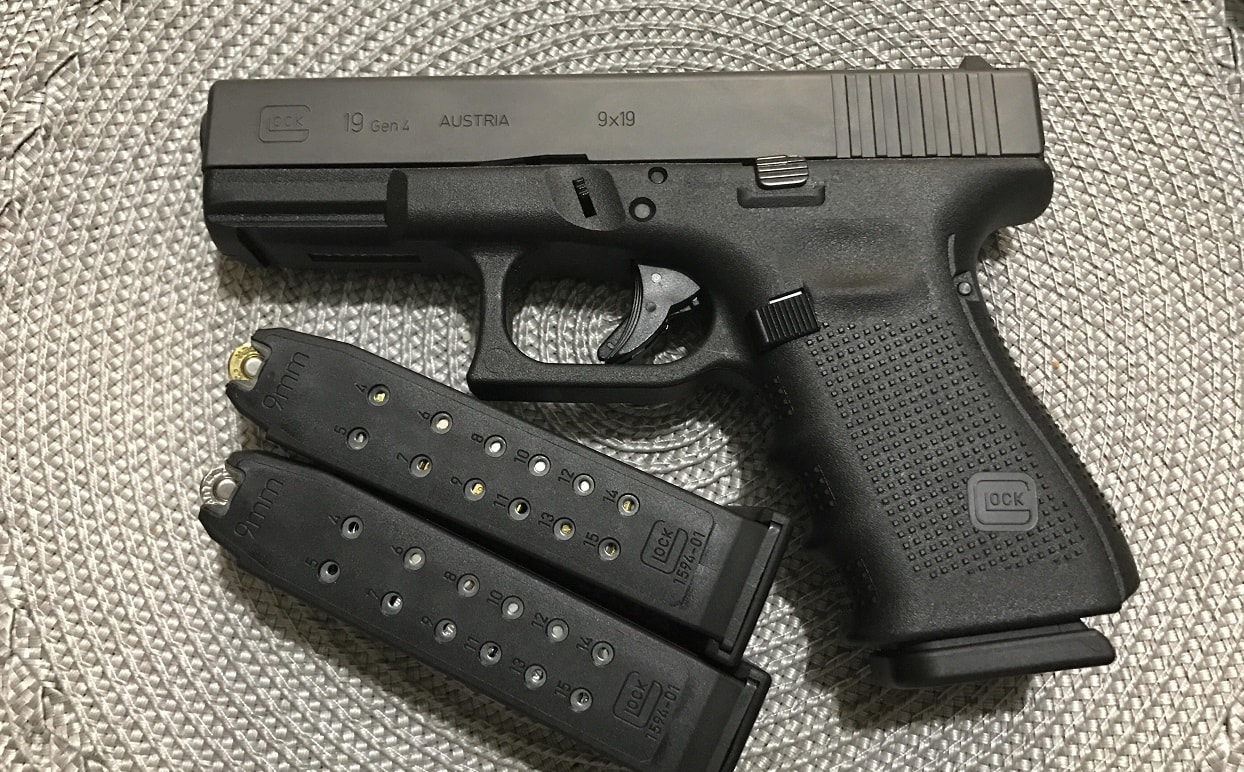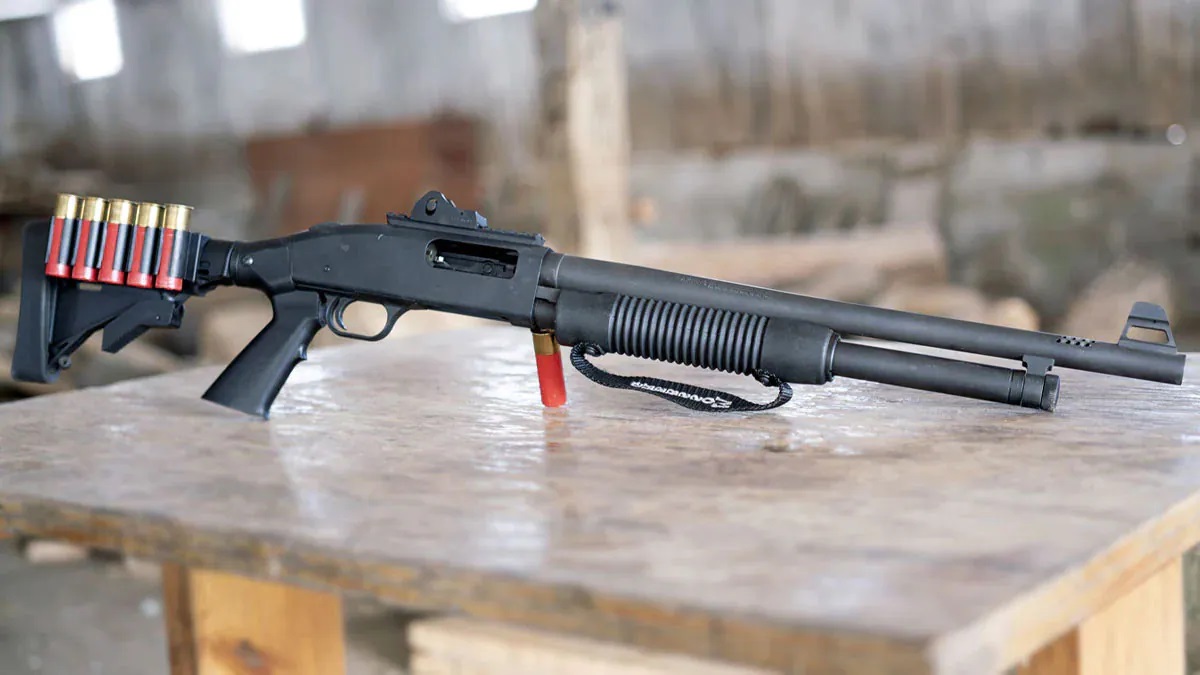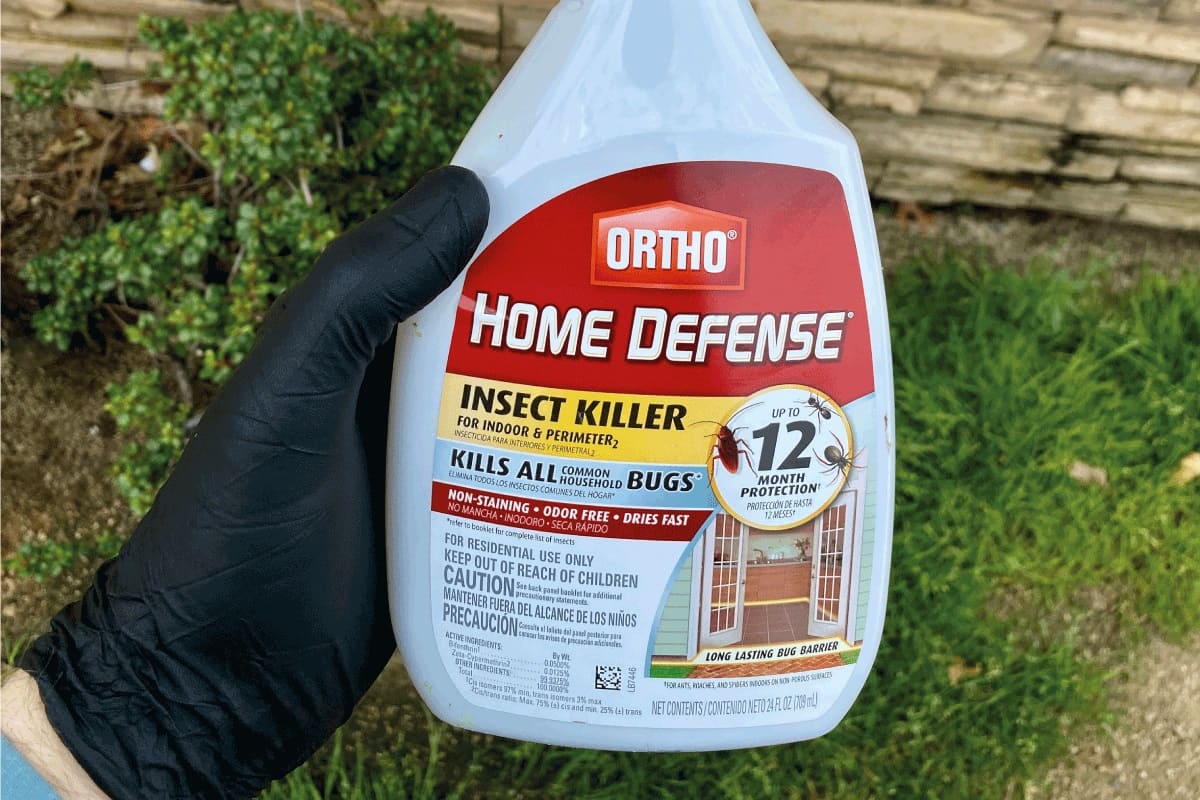Home>Home Security and Surveillance>What To Use For Home Defense
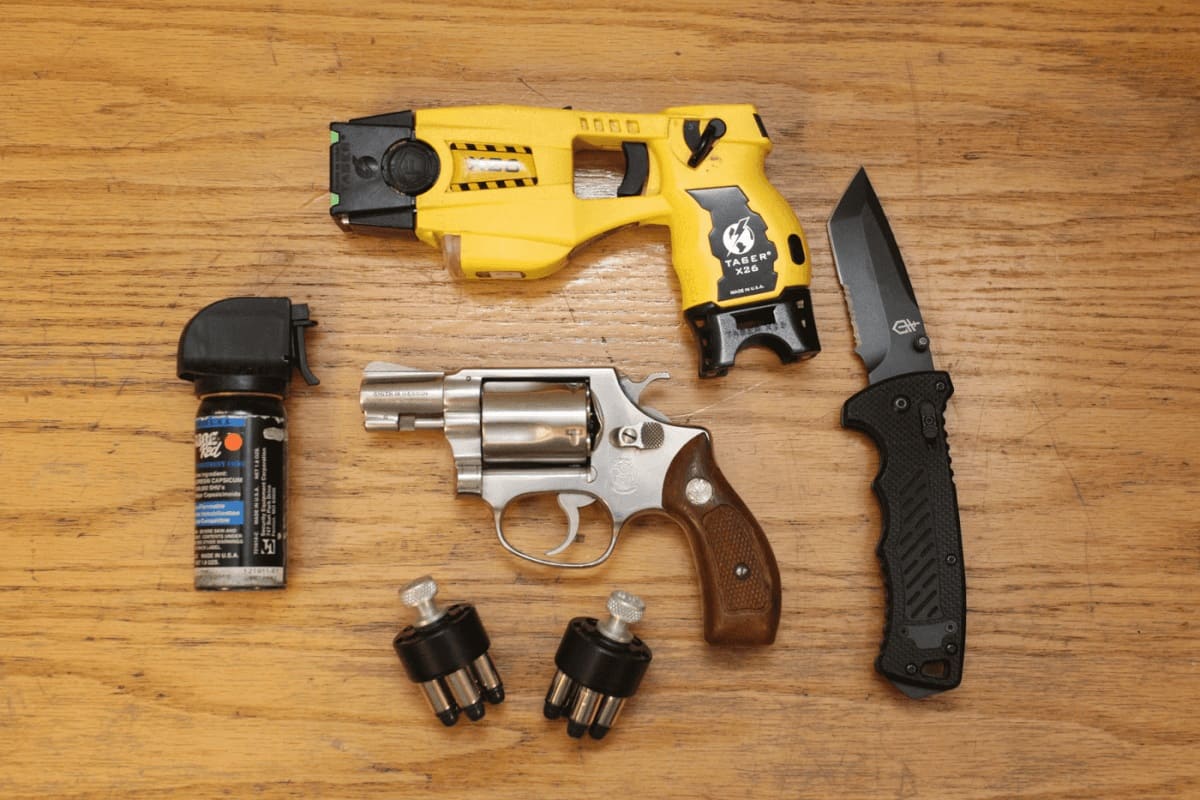

Home Security and Surveillance
What To Use For Home Defense
Modified: March 6, 2024
Find out what to use for home defense with the best home security and surveillance options available. Protect your home and loved ones with advanced technology and peace of mind.
(Many of the links in this article redirect to a specific reviewed product. Your purchase of these products through affiliate links helps to generate commission for Storables.com, at no extra cost. Learn more)
Introduction
When it comes to ensuring the safety and security of your home, having a well-equipped defense system is crucial. Whether you live in a quiet suburban neighborhood or a bustling city, taking proactive measures to protect your home and loved ones is essential. In this article, we will explore various options for home defense, ranging from firearms to advanced security systems, to help you make an informed decision based on your needs and preferences.
Before diving into the different home defense options, it’s important to note that safety should always be the top priority. Any weapon or security system should be handled responsibly and in compliance with local laws. It’s also essential to prioritize non-lethal alternatives whenever possible, focusing on deterring potential threats rather than causing harm.
Now, let’s explore some of the most effective and popular options for home defense:
Key Takeaways:
- Choose the Right Defense: Whether it’s firearms, non-lethal weapons, or advanced security systems, make an informed decision based on your needs, local laws, and personal comfort level.
- Create a Secure Environment: Implement a comprehensive security system, practice home defense strategies, and stay informed to protect your home and loved ones effectively.
Read more: How To Use AR-15 For Home Defense
Firearms
Firearms are one of the most controversial yet prevalent choices for home defense. They provide homeowners with a means to protect themselves and their property in case of an intruder. However, owning a firearm comes with significant responsibility and potential risks, so it’s essential to approach this option with caution.
Before deciding to keep a firearm in your home, it’s crucial to understand the laws and regulations surrounding gun ownership in your area. Familiarize yourself with the proper handling and storage of firearms, and consider completing a firearms safety course to ensure you are well-prepared.
When selecting a firearm for home defense, look for one that is reliable, easy to use, and comfortable to handle. Shotguns and handguns are popular choices due to their ease of maneuverability in tight spaces. Consider factors such as your level of experience, recoil control, and the ability to access and operate the weapon quickly under stress.
It’s also important to invest in a secure and reliable gun safe to store your firearms when they are not in use. Proper storage ensures that only authorized individuals can access the guns and reduces the risk of accidents or misuse.
Remember, owning a firearm is a personal decision that requires careful evaluation of your comfort level, skillset, and willingness to take on the associated responsibilities. It’s also important to keep in mind that firearms should always be the last resort in a home defense situation and should only be used when there is an immediate threat to your life or the lives of others.
Non-Lethal Weapons
For homeowners who prefer non-lethal options, there are several effective tools available for self-defense. These weapons are designed to incapacitate or deter intruders without causing severe harm or loss of life.
One popular non-lethal option is pepper spray. It contains a chemical compound called oleoresin capsaicin, which irritates the eyes, nose, and skin, causing temporary blindness, coughing, and difficulty breathing. Pepper spray is small, easy to carry, and can be quickly deployed in case of an emergency. However, it’s important to practice proper usage and be aware of potential wind direction to avoid inadvertently affecting yourself.
Another non-lethal weapon is a stun gun or taser. These devices deliver a powerful electric shock to the attacker, temporarily immobilizing them and giving you the opportunity to escape or seek help. Stun guns require close contact with the target, while tasers can be used from a distance. It’s crucial to familiarize yourself with the proper operation and maintenance of these devices to ensure their effectiveness.
Batons, also known as expandable or telescopic batons, provide a non-lethal option for home defense. These retractable devices can be quickly extended to their full length with a flick of the wrist, allowing you to create distance between yourself and the intruder. Batons are effective for striking and blocking, but training and practice are necessary to achieve optimal results.
Other non-lethal options include personal alarms and whistles, which can alert others to your location or startle an intruder. These devices are small, easy to carry, and can provide a valuable distraction in a home defense situation.
Remember that regardless of the non-lethal weapon you choose, proper training and practice are essential. Understanding the limitations and techniques for effective use will significantly increase your chances of successfully defending yourself and your home.
Alarm Systems
Alarm systems are a popular and effective deterrent for home intrusion. These systems work by detecting unauthorized entry into your property and triggering an alarm to alert you and potentially scare off intruders.
There are various types of alarm systems available, ranging from basic DIY setups to professionally installed systems. When choosing an alarm system, consider factors such as your budget, the size of your home, and your specific security needs.
Some alarm systems utilize sensors placed on doors and windows, detecting when they are opened or tampered with. These sensors can be wired or wireless, depending on your preference. When a sensor is triggered, it sends a signal to a central control panel, which then activates the alarm.
Many alarm systems also come with motion detectors, which use infrared technology to detect movement within a specified area. These detectors are placed strategically throughout the home and can initiate the alarm if an intruder is detected.
One advantage of alarm systems is their ability to connect to a monitoring service. This service is notified when the alarm is triggered and can alert the authorities on your behalf. Having a monitoring service adds an additional layer of protection and peace of mind.
Modern alarm systems often include features such as remote access and smartphone integration. This allows you to monitor your home and control the alarm system from anywhere, providing convenience and control over your security.
When selecting an alarm system, ensure that it is professionally monitored and meets industry standards. Regular maintenance and testing of the system are crucial to ensure its reliability and effectiveness.
While alarm systems can be effective deterrents, it’s important to note that they primarily serve as a warning and may not physically prevent intrusions. Therefore, it’s recommended to combine alarm systems with other security measures, such as surveillance cameras and reinforced doors and windows, to create a comprehensive home defense strategy.
Security Cameras
Security cameras have become increasingly popular tools for home security due to their ability to monitor and record activities in and around your property. They act as a visual deterrent and provide valuable evidence in the event of a break-in or other security-related incidents.
There are various types of security cameras available, ranging from standalone systems to integrated setups that connect to a central monitoring station. When choosing security cameras, consider factors such as the area you want to cover, the level of image clarity you desire, and any specific features you may need.
One type of security camera is the traditional analog camera, which captures and transmits footage in analog format. However, digital IP cameras have become more popular in recent years. IP cameras record and transmit high-quality digital footage, allowing for better clarity and remote access capabilities.
When installing security cameras, consider key areas such as entry points, garages, and yards. Placing cameras at these locations can help deter potential intruders and provide you with valuable footage in the event of a break-in.
Some security cameras come equipped with motion detection capabilities, which alert you when movement is detected within the camera’s field of view. This feature is especially useful for monitoring outdoor areas, as it reduces the amount of video footage to review and saves storage space.
It’s important to choose security cameras with sufficient video storage capacity. This can be achieved through the use of local storage devices, such as NVRs (Network Video Recorders), or cloud-based storage options offered by security camera manufacturers.
Whether you opt for a standalone security camera system or a professionally monitored setup, make sure to research and compare different options to find the best fit for your home and budget. Regular maintenance and testing of the cameras are also essential to ensure their continued functionality.
Remember that security cameras alone may not prevent a break-in, but they can act as a powerful deterrent and provide valuable evidence in the event of a security breach. Combining security cameras with other home defense measures will create a comprehensive security system for your home.
Read more: How Often Are Firearms Used In Home Defense
Home Automation Systems
Home automation systems offer a sophisticated and convenient approach to home security by integrating various devices and technologies. These systems allow you to control and monitor different aspects of your home, including security features, through a centralized platform.
With a home automation system, you can remotely arm and disarm your security system, control lights, lock and unlock doors, and even adjust thermostats. This level of control provides added convenience and peace of mind, as you can manage your home’s security no matter where you are.
One of the significant benefits of home automation systems is their ability to integrate with other security components, such as alarm systems, surveillance cameras, and smart locks. This integration allows for seamless communication between devices, enhancing the overall effectiveness of your home security system.
Many home automation systems also offer advanced features such as intelligent sensors and machine learning algorithms. These technologies can analyze patterns and behaviors in your home to detect anomalies, automatically adjusting security settings or sending alerts if any suspicious activity is detected.
Home automation systems often come with mobile applications that allow you to control and monitor your home security remotely. This means you can receive real-time notifications, view live video feeds from surveillance cameras, and make adjustments to your security settings on the go.
It’s important to choose a reliable and reputable home automation system that meets your specific needs. Research different options and consider factors such as compatibility with existing devices, ease of use, and the availability of customer support and regular software updates.
Keep in mind that home automation systems may come at a higher cost compared to other home security options. However, the convenience and added functionality they provide make them a valuable investment for those seeking an all-encompassing and technologically advanced approach to home security.
Remember to regularly update the software of your home automation system and ensure that all connected devices are secure and protected. Additionally, develop strong passwords and employ other cybersecurity best practices to safeguard your system from potential threats.
With a properly implemented home automation system, you can enjoy peace of mind knowing that your home is secure and that you have complete control over its security features at all times.
Reinforced Doors and Windows
One of the fundamental aspects of home security is ensuring that your doors and windows offer robust protection against unauthorized entry. Reinforcing doors and windows can be an effective deterrent, making it more difficult for intruders to break into your home.
When it comes to doors, consider upgrading to solid-core or metal doors, as they are more resistant to forced entry compared to standard wooden doors. Reinforced doors are typically constructed with materials such as steel or fiberglass, making them more difficult to kick in or break down.
Another important component of door security is the installation of high-quality deadbolt locks. Look for deadbolts that have a minimum one-inch throw and a hardened steel bolt to prevent them from easily being tampered with or forced open. Reinforce the strike plate on the door frame with longer screws to provide additional strength.
For windows, consider using laminated or tempered glass, which is more resistant to breaking. Additionally, install window security film, which adds an extra layer of protection and prevents the glass from shattering easily. Adding window locks or window security bars can also enhance the security of your windows.
Another option to consider is installing window and door sensors as part of your security system. These sensors trigger an alarm if a door or window is opened or tampered with, alerting you and potentially scaring off intruders.
In addition to reinforcing doors and windows, consider enhancing the overall security of the entry points to your home. Well-lit entrances, with motion-sensor lights or smart lighting systems, can deter potential intruders and provide increased visibility during nighttime hours.
It’s important to regularly inspect and maintain your reinforced doors and windows to ensure their continued effectiveness. Perform routine checks for any signs of wear or damage, and promptly address any issues that may compromise the security of these entry points.
Remember, reinforcing doors and windows should be part of a comprehensive home security strategy. Combining this with other security measures, such as alarm systems, security cameras, and home automation systems, will provide a more robust defense against potential intruders.
Home Defense Strategies
While investing in security measures is essential, it’s equally important to develop effective home defense strategies to keep yourself and your loved ones safe. Here are some strategies to consider:
1. Create a Security Plan:
Develop a comprehensive security plan for your home. This plan should include protocols for when to use specific security measures, such as activating alarm systems, locking doors and windows, and identifying safe areas within your home in case of an emergency.
Read more: What Are Home Defense Rounds
2. Practice Situational Awareness:
Be mindful of your surroundings and stay alert to any suspicious activity in your neighborhood. By staying aware, you can detect potential threats early on and take appropriate action.
3. Know Your Neighbors:
Building good relationships with your neighbors can create a strong community network where everyone looks out for one another. Inform them when you’ll be away and offer to do the same for them. This can help deter burglars and ensure that someone is keeping an eye on your property.
4. Maintain Outdoor Maintenance:
A well-maintained yard can deter potential intruders by giving the impression that someone is actively living in and caring for the property. Trim overgrown bushes, ensure proper lighting, and keep entrances well-lit to eliminate potential hiding spots.
5. Be Mindful of Social Media:
Avoid sharing details of your travel plans or extended periods of absence on social media. Such information can alert burglars that your home is unoccupied, making it an easy target.
Read more: How To Use Home Defense Bug Spray
6. Reinforce Personal Safety:
Consider personal safety measures, such as self-defense classes or training in martial arts. These skills can prove valuable in a dangerous situation and provide you with the confidence and ability to protect yourself and your loved ones.
7. Emergency Preparedness:
Create an emergency kit that includes essential items such as first aid supplies, non-perishable food items, water, flashlights, and battery-powered radios. Familiarize yourself with emergency procedures and evacuation routes in case of a natural disaster or other emergency situations.
8. Regularly Assess Security Measures:
Periodically review your home security measures to ensure they are functioning correctly and meet your evolving needs. Test alarm systems, update security codes, and replace batteries in devices regularly to maintain their effectiveness.
9. Communicate with Law Enforcement:
Stay informed about local crime trends and communicate with local law enforcement agencies to better understand security issues in your area. They can provide valuable insights and guidance on how to enhance your home defense strategies.
By implementing these home defense strategies, you can significantly reduce the risk of a security breach and create a safe and secure environment for you and your family.
Read more: How To Use Paintball Gun For Home Defense
Conclusion
Ensuring the safety and security of your home is a top priority. By implementing a combination of different home defense options, you can create a robust and effective security system tailored to your needs.
Whether you choose firearms, non-lethal weapons, alarm systems, security cameras, home automation systems, reinforced doors and windows, or a combination of these measures, it’s crucial to approach home defense with a comprehensive mindset. Each option has its own advantages and considerations, so take the time to research and evaluate which ones align with your preferences and local regulations.
Remember, having a security system in place is just the first step. It’s equally important to develop and practice home defense strategies, foster a strong community network, and stay informed about the latest safety measures. By doing so, you can create a secure environment and provide peace of mind for you and your loved ones.
Regularly reassess your home security measures, stay updated on advancements in security technology, and make any necessary adjustments to address any potential vulnerabilities. Stay vigilant, be prepared, and take proactive steps to protect your home and those within it.
Ultimately, home security is about finding the right balance between deterring potential threats and feeling safe within the walls of your own home. By combining knowledge, awareness, and effective security measures, you can create a fortress that provides peace, comfort, and a sense of security for you and your family.
Frequently Asked Questions about What To Use For Home Defense
Was this page helpful?
At Storables.com, we guarantee accurate and reliable information. Our content, validated by Expert Board Contributors, is crafted following stringent Editorial Policies. We're committed to providing you with well-researched, expert-backed insights for all your informational needs.
